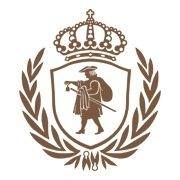
Swedish School of Textiles

Prof. Mats Tinnsten
Summary
The Swedish School of Textiles is one of the schools of the University of Borås and formed from the Technical School of Weaving, which was founded in 1866. In 1936, the Technical School of Weaving became the Textile Institute, which in 1986 was nationalised and became The Swedish School of Textiles as part of the University of Borås.
History
The Swedish School of Textiles traces its origins to the early Twentieth century, rooted in Sweden's rich tradition of craftsmanship and innovation in textile manufacturing.
Established initially as an extension of vocational training programs, the school envisioned equipping its students with practical skills and technical knowledge necessary for the textile industry. Its foundation was influenced by Sweden’s reputation for high-quality textiles and a societal emphasis on sustainable and functional design, reflecting the country's broader industrial development during that period.
Throughout the Twentieth century, the Swedish School of Textiles evolved significantly, integrating modern design principles and technological advancements. Post-World War II, the school expanded its curriculum to include innovative textile techniques, material science, and design innovation, aligning with global trends in fashion and industrial textiles. This period also saw collaborations with industry leaders, fostering research and development that contributed to Sweden’s prominence in textile design and production.
In recent times, the Swedish School of Textiles has become part of the University of Borås, strengthening its academic and research capabilities. It has gained international recognition for its focus on sustainable textiles and eco-friendly practices, reflecting Sweden’s commitment to environmental responsibility. Today, it continues to serve as a leading institution for education, research, and innovation in textiles, combining traditional craftsmanship with cutting-edge technology.
Courses
The Swedish School of Textiles offers Bachelor's programmes designed to equip students with specialized skills in Fashion Design, Textile Design and Textile Engineering, allowing students to develop creative and technical expertise. Additionally, there is a Bachelor Programme in Textile Management and Business Administration. Other notable bachelor's options are Textile Product Development and Entrepreneurship, Textile Production and Innovation, providing a comprehensive foundation for careers in both creative and management roles within the textile sector.
For those pursuing advanced studies, the school offers Master's programmes in Textile Management, Technical Textile Innovation, Textile Engineering, Fashion Marketing and Management, Fashion and Textile Design, and Textile Value Chain Management. The institution also supports doctoral education in areas such as Textile Management, Textile Engineering, and Design, fostering research and innovation in textiles and fashion.
Global MBA rankings
The Swedish School of Textiles, as part of the University of Borås, is primarily recognised for its specialized programs in textiles, fashion, and design rather than for offering a traditional global MBA program. Consequently, it does not appear in global MBA rankings such as those published by Financial Times, QS, or The Economist.
Job integration rate
The job integration rate at the Swedish School of Textiles is generally high, reflecting the strong connection between the school’s academic programs and the textile industry. Graduates from the school often find employment in fashion design, industrial textiles, sustainable textiles, research and development. The school's emphasis on practical skills, industry collaboration, and innovation plays a significant role in facilitating successful career transitions for its students.
The school actively partners with industry leaders and provides internship opportunities, which enhance students’ employability and professional networks. Additionally, the school's focus on sustainability and technological expertise aligns well with current industry demands, further supporting graduates' integration into the workforce. For the most precise and recent data on the job integration rate, prospective students or interested parties should consult the University of Borås or the Swedish School of Textiles’ official reports and alumni surveys.
Explore the latest data on Business, Industry Leaders and Influencers, Organizations, Education, and Investors to stay informed and ahead.

Prof. Mats Tinnsten
